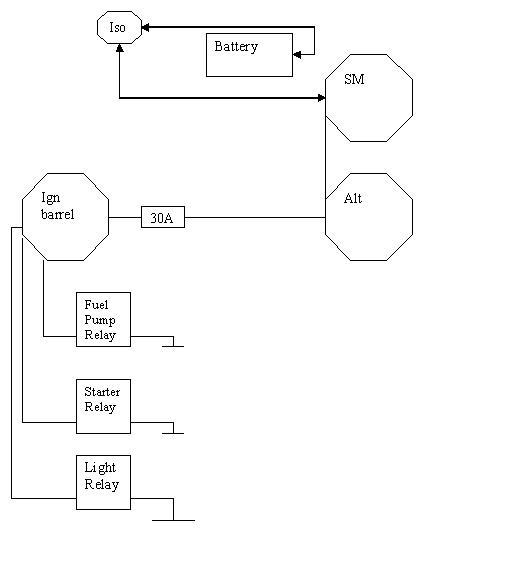hi all,,,
need some thoughts,,,
ref: trike re-wire...
have wired a trike a year ago which seemed fine. will try upload some wiring diagrams... but see what you guys think so far.
ok so its a 12v chassis return.... i have a lead from bat+ to isolator switch - then iso sw to starter motor - then to the alternator - then to the ignition barrel. it is fused on the line between alt and ign barrel.
ign barrel then provides outputs at various stages to
1. fuel pump relay
2. starter motor relay
3. main lights switch relay
4. a few minor things such as fuel guage and horn.
so its not highly loaded at all, its just hold on relays etc.. (the main feed for starter motor and fuel pump etc comes direct from isolator switch.)
problem is it all works and has done, but for some reason the fuse on the line between alt and ign barrell now gets hot and blows as if overloaded???
currently a 30amp fuse which will blow once vehicle has been used for 2 hrs or so.. ???
need some thoughts,,,
ref: trike re-wire...
have wired a trike a year ago which seemed fine. will try upload some wiring diagrams... but see what you guys think so far.
ok so its a 12v chassis return.... i have a lead from bat+ to isolator switch - then iso sw to starter motor - then to the alternator - then to the ignition barrel. it is fused on the line between alt and ign barrel.
ign barrel then provides outputs at various stages to
1. fuel pump relay
2. starter motor relay
3. main lights switch relay
4. a few minor things such as fuel guage and horn.
so its not highly loaded at all, its just hold on relays etc.. (the main feed for starter motor and fuel pump etc comes direct from isolator switch.)
problem is it all works and has done, but for some reason the fuse on the line between alt and ign barrell now gets hot and blows as if overloaded???
currently a 30amp fuse which will blow once vehicle has been used for 2 hrs or so.. ???



